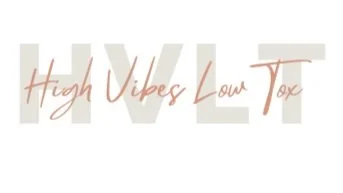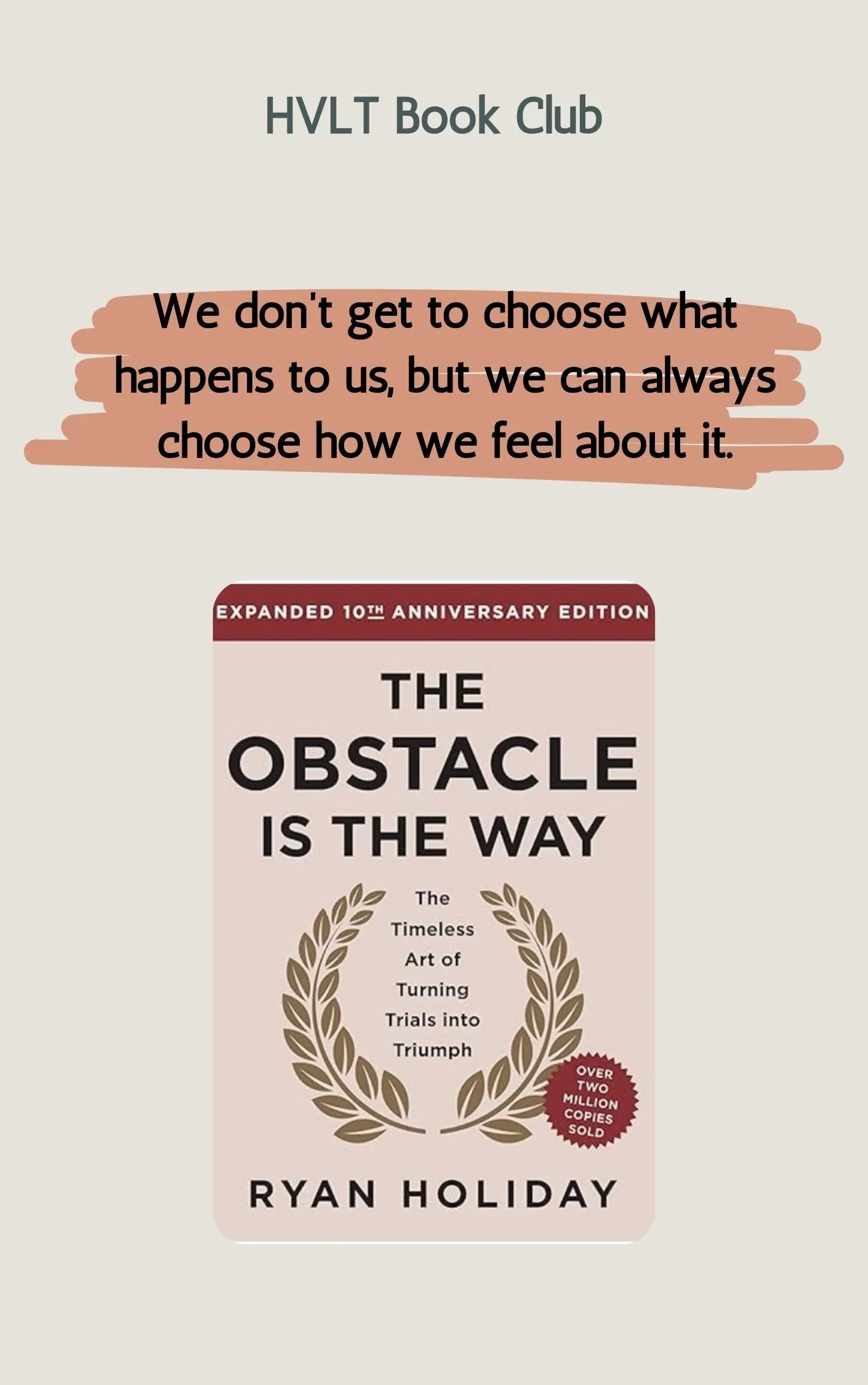HVLT Book Club: The Obstacle is the Way
“Choose not to be harmed—and you won’t feel harmed. Don’t feel harmed—and you haven’t been.”
I hope everyone is having a great week! Where has this month gone? January seemed to take 5 years yet I blinked and we’re already halfway through February. Today I’m switching things up and showcasing a book I beleive everyone should read. I enjoyed writing this post so much I may even turn it into a series showcasing all of my favorite books.
I’m a huge Ryan Holiday fan—I've read nearly all of his books, and each one has left a lasting impact on me. (Future book reviews coming soon!) The Obstacle Is the Way is one of my favorites. At least Top 5. The messaging resonates with me and the concise delivery makes the concepts easy to apply to my life. This book has changed how I approach my work, relationships, parenting, and, most importantly, my health journey.
At its core, this book is about using challenges as stepping stones rather than roadblocks. Based on Stoic philosophy, Holiday teaches that our struggles aren’t here to stop us—they’re here to shape us. And when it comes to improving your health, this mindset shift is EVERYTHING.
The Obstacle Is the Way is a powerful guide to transforming obstacles into opportunities. Holiday explains that setbacks and challenges aren’t there to hold us back—they are the path to growth, success, and resilience.
The book is broken into three core principles.
Perception: How You See the Problem Is the Problem
The way we interpret obstacles determines how we respond to them. Instead of seeing challenges as roadblocks, we need to reframe them as opportunities.
A big theme in the book is shifting your perception. In wellness, this is huge.
Instead of saying, “I don’t have time to work out,” try “Movement is my stress relief—I get to work out.”
Instead of saying, “I’m so tired all the time,” ask, “Hmmm… That’s odd. What’s my body trying to tell me?”
Instead of thinking, “This weight loss journey is so slow,” remind yourself, “Sustainable changes take time. I’m building lifelong habits.”
The way you frame the challenge determines how you approach it. Seeing opportunities in obstacles does not come naturally: it’s a skill and an attitude you must train with self-discipline.
Key Takeaway: Train your mind to control emotions, stay objective, and focus on what you can do instead of what’s outside your control.
Action: Take Small, Strategic Steps
Instead of getting stuck in fear, frustration, or self-doubt, take deliberate action. The key is relentless forward motion—even if it’s slow, imperfect, or messy.
One of my favorite parts of the book is the idea that you don’t need perfect circumstances to take action. You don’t need a 90-minute gym session to get stronger—you need 15 minutes of consistent movement. You don’t need the perfect diet—you need to focus on one small, positive shift at a time. Waiting for the “perfect moment” to start your health journey? Spoiler: it’s not coming. The best time to start is now, with what you have.
Everything you do matters, everything is a chance to do and be your best. Whether that’s making smoothies or bar-tending as you save money for your dream. My favorite quote of all time is “How you do anything is how you do everything.” How you treat yourself when no one is looking is just as important as how you perform at work or when the spotlight is on. Be excellent in everything you do.
Key Takeaway: Progress isn’t about perfection; it’s about persistence. Work with what you have, and don’t wait for ideal circumstances.
Will: Build Inner Strength for the Long Game
Not everything (heck - hardly anything) is within our control—but our response always is. Will is about resilience, endurance, and finding purpose in the struggle.
When things get hard (and they will), how do you respond? If your wellness journey hits a plateau, do you quit—or do you stay the course? If life gets stressful, do you turn to old habits, or do you double down on the ones that serve you? Your ability to keep going—even when it’s inconvenient, even when it’s slow, even when it’s frustrating—is what separates people who reach their health goals from those who stay stuck.
We don’t get to choose what happens to us, but we can always choose how we feel and what we do about it.
Key Takeaway: Accept what you can’t change, focus on what you can, and use obstacles to make you stronger.
Why This Matters
If you’re like most of my clients—busy, overwhelmed, and pulled in a million directions—then you’ve probably faced setbacks in your health journey. Maybe you’ve tried every diet, only to feel like nothing works. Maybe stress keeps sabotaging your weight loss. Maybe you want to work out, but between work, kids, and life, it feels impossible.
Holiday’s message? The obstacle isn’t in the way—it is the way.
What if instead of seeing stress, fatigue, or even health struggles as things blocking your progress, you saw them as opportunities? What if they were here to teach you something—like where your boundaries need to be stronger, where your habits need tweaking, or where your body is screaming for nourishment instead of just another quick fix?
How to Apply This TODAY
Reframe Your Challenges – Next time something feels like an obstacle, ask: What is this teaching me? How can I use it to my advantage?
Stop Rushing to the solution. The challenge is life. How you act in the challenge is your character. Instead of fighting it, embrace it and meet the challenge with grace and composure.
Take Imperfect Action – Start small. A five-minute workout. One healthier meal. A nighttime wind-down routine. Progress over perfection.
Commit to the Process – True health isn’t about quick fixes. It’s about resilience, habits, and showing up for yourself even when it’s hard.
If you’re ready for a mindset shift in your health and wellness journey, The Obstacle is the Way is a must-read. This book will help you see struggles differently—not as things stopping you, but as the very things shaping you into the healthiest, strongest version of yourself.
Because at the end of the day? The obstacle is the way.
“When panic rears its ugly head, say “no thank you, I can’t afford to panic”, and go back to focusing on what you can control.”

